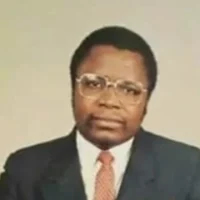The worldwide increase in demand for recreational drugs in the 1960s and 1970s prompted drug barons in Colombia to ramp up production, processing and export of coca and marijuana. As it became a key exporter of cocaine and marijuana to the U.S., Colombia suffered from drug-related violence among competing cartels that increased in later years.… Read More "At War with Colombian Drug Barons"
Remember, Remember 17 November
The shock of terrorist attacks in Europe in the past decade, notably in Paris, London, and Madrid, sadly recall an even grimmer period during the 1970’s and 80’s when terrorism was a widespread and chronic threat throughout the continent, especially in Greece. One of the chief culprits was the Revolutionary Organization 17 November, also known… Read More "Remember, Remember 17 November"
Taking the Chill off the Cold War: The First Reagan-Gorbachev Summit
The Geneva Summit of 1985 was the first meeting between President Reagan and Soviet General Secretary Gorbachev to talk about the arms race, particularly the Strategic Defense Initiative, and to establish personal relations between the leaders of the world’s superpowers. Held November 19, 1985 at a chateau owned by the Aga Khan, the first meeting went over… Read More " Taking the Chill off the Cold War: The First Reagan-Gorbachev Summit"
Liberia erupted in violence on April 12, 1980 as Master Sergeant Samuel Kanyon Doe seized power from President William Tolbert, ending 133 years of political dominance by Americo-Liberians. Americo-Liberians traced their ancestry to African Americans and Black British subjects who immigrated to Africa and became the founders of the Republic of Liberia, in power from 1847-1980. In October… Read More "Surviving the Coup that Transformed Liberia"
The “Other” Embassy Attack of November 1979 — The Siege of Embassy Islamabad
The attack on the American embassy in Tehran on November 4, 1979 and the subsequent 444-day imprisonment of American personnel has become the stuff of legend – it was followed day by day on the news by millions of Americans, many of whom put yellow ribbons on trees and their houses as a sign of solidarity.… Read More "The “Other” Embassy Attack of November 1979 — The Siege of Embassy Islamabad"
The 1989 Romanian Revolution and the Fall of Ceausescu
1989 was the year of remarkable popular uprisings throughout the world, most notably Tiananmen Square, the fall of the Berlin Wall, and the Velvet Revolution in Czechoslovakia. December saw the fall of one of Eastern Europe’s most brutal dictators, Nicolae Ceaușescu and it did not come peacefully. The Romanian Revolution started in the city of… Read More "The 1989 Romanian Revolution and the Fall of Ceausescu"
The Velvet Revolution, November 1989
In 1989, change was in the air throughout all of Eastern Europe. Mikhail Gorbachev’s policies of glasnost and perestroika – openness and restructuring – signaled a radically different tone from Moscow and people in the Eastern Bloc took notice. The Berlin Wall, which had long stood as a concrete symbol of the clash between East… Read More "The Velvet Revolution, November 1989"
The Canadian Caper, Argo, and Escape from Iran
The years leading up to the autumn of 1979 in Iran proved to be turbulent, resulting in a radical transformation of the nation. The U.S had backed the semi-absolutist monarchy of Mohammad Reza Shah Pahlavi, even when the increasing popularity of Islamic fundamentalism, Iranian Nationalism, and opposition to western influence exploded, culminating in protests against… Read More "The Canadian Caper, Argo, and Escape from Iran"
A Tale of Two Countries — and One Bizarre Hostage Situation
If you think your relationships are complex, consider the convoluted ties among Ghana, Guinea, and the United States in the mid-1960s. The friendship between Ghana’s first President, Kwame Nkrumah, and Guinea’s first President, Ahmed Sékou Touré, proved problematic for the United States, and even led to the first U.S. diplomatic hostage situation, years before Iran.… Read More "A Tale of Two Countries — and One Bizarre Hostage Situation"
House Un-American: Foreign-Born Wives of American Diplomats
Before World War II, there was a concern, particularly with upper-level Foreign Service officers like Ambassador William C. Bullitt, regarding American diplomats marrying foreign-born women. He used his influence with President Franklin Roosevelt to encourage a rule requiring FSO’s to submit their resignation and formally request permission to marry foreign spouses. Many people felt that… Read More "House Un-American: Foreign-Born Wives of American Diplomats"

